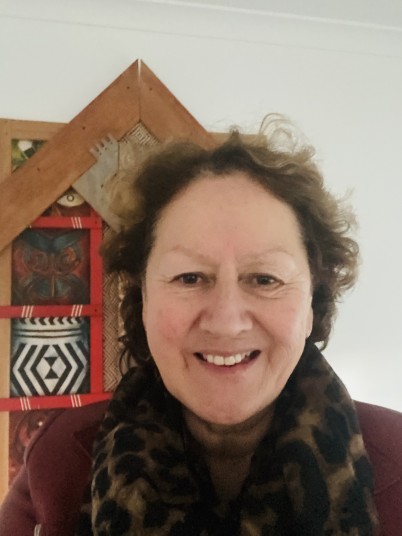The co-founder and co-director of New Zealand’s first community-based, independent research institute focused on environmental and health research has received the Health Research Council’s Te Tohu Rapuora Medal for her tireless commitment to advancing Māori health over a research career spanning more than 20 years.
Te Atawhai o Te Ao senior researcher Dr Cherryl Waerea-i-te-rangi Smith (Ngā Wairiki-Ngāti Apa, Te Aitanga a Hauiti, Ngāti Kahungunu, Ngāi Tahu) of Whanganui received the Te Tohu Rapuora Medal at the Royal Society Te Apārangi’s Honours Dinner in Wellington this evening.
Cherryl established Te Atawhai o Te Ao in 2005 with Dr Paul Reynolds to enable kaupapa Māori research that addresses Māori needs and is firmly rooted within whānau, hapū, iwi and the community. Since then, she has gone on to lead and be a part of many influential Māori-focused health projects, including working with Māori Vietnam War veterans experiencing ongoing health issues; developing asthma support and self-management programmes for tamariki; and working with grandparents raising their mokopuna to help them get more support for their health and wellbeing needs.
The primary motivation behind Te Atawhai o Te Ao, says Cherryl, was a desire to work within her own community and mentor and support postgraduate students who had returned home to Whanganui.
“Research has predominately been done out of universities, but both Paul and I wanted to work at home with our people, to be more in touch and more directly guided by them. It was a big risk at the time because we didn’t know if people would fund us, whether we would be accepted as a host institution outside of academia. However, we decided to take the plunge because we were so passionate about what we wanted to do,” she says.
In 2011, Cherryl led the five-year HRC-funded Programme He Kokonga Whare: Māori Intergenerational Trauma and Healing. This made history as the first HRC Programme to be awarded to a community-based host.
HRC chief executive Professor Sunny Collings says the He Kokonga Whare Programme has helped change the national discourse around Māori intergenerational and historical trauma and healing.
“Before this Programme started, connections were not being drawn clearly between historical trauma events and the impact on the health of Māori in the health system. This Programme has helped Aotearoa New Zealand gain a better understanding of the overwhelming trauma Māori have been exposed to for almost two centuries. Through this understanding, it is possible to purposely direct efforts towards better health research outcomes and, more broadly, positive changes to the overall wellbeing of Māori. Cherryl was instrumental in leading this change,” says Professor Collings.
Cherryl says she has been in discussions with many government departments, including the Ministry for Justice, Department of Corrections and Ministry of Social Development, and has been heartened by the awareness there is of her team’s research.
“They are all now talking about Māori trauma-informed care, which is a great step in the right direction. Following on from the initial Programme, Professor Leonie Pihama and her team have nearly completed an HRC-funded Project that will provide kaupapa Māori models for trauma-informed care within the mental health sector,” says Cherryl.
Te Atawhai o Te Ao director Dr Rawiri Tinirau says Cherryl has always made sure that when developing research, collaboration with Māori is paramount.
“Cherryl has ensured that Te Atawhai o Te Ao exists to assist and benefit the health and wellbeing of Māori, and that research priorities are always informed and based on the wants and needs of our community.
“She is an astute leader who exemplifies humility by giving selflessly, providing wise mentorship, and encouraging others to do their best. Being based within her community, she can provide direct support to others through advisory roles, training, supervision of students and development of staff. Her ability and willingness to support those who otherwise would not have access to the appropriate support is what makes Cherryl such an admirable leader, not just in the world of academia, but in community research as well. In addition to this, she is raising her eldest mokopuna and continues to work for her whānau, marae, hapū, iwi and the wider Whanganui community,” says Dr Tinirau.
Cherryl says she is humbled to be awarded the HRC’s Te Tohu Rapuora Medal for outstanding Māori health leadership, excellence and contribution, and remains as passionate as ever about seeing the wisdom of Māori more fully expressed to reduce health inequities.
“If the standard solutions were going to work, they would have worked by now. We know Māori want Māori solutions to Māori problems, and there is now motivation to look for innovative solutions. Māori have ways of doing things that are collective, more relationship based, more likely to connect environmental concerns simultaneously with health concerns. There are many approaches to improving health and wellbeing that are advantageous for everybody by using those fields of knowledge that Māori hold.”
